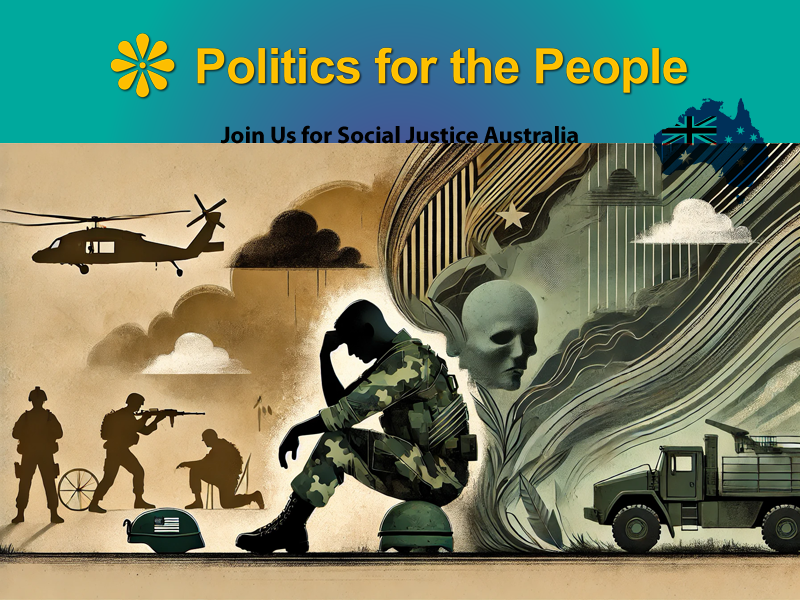Introduction: The Paradox of Military Training
Military training involves preparing individuals to perform under the extreme conditions of warfare, often requiring them to override their innate human instincts to avoid harming others. This article delves into the psychological strategies used in military training, explores the political tactics that cultivate public support for war, and discusses the profound moral implications of these practices.
Military Training: Overcoming Human Instincts
Understanding Conditioning Techniques
Military training extensively employs psychological conditioning to prepare soldiers for the demands of combat. The two primary methods used are Pavlovian conditioning and operant conditioning, each playing a critical role in overcoming soldiers’ innate aversion to killing.
Pavlovian Conditioning

Pavlovian conditioning, also known as classical conditioning, involves creating an association between a neutral stimulus and a naturally occurring stimulus. In military contexts, this might involve pairing the sound of a gunshot (neutral stimulus) with aggressive responses or feelings of power (natural stimuli), thereby conditioning soldiers to respond aggressively in combat situations without hesitation. This type of conditioning helps in reflexively preparing soldiers to act in high-stress environments, bypassing slower conscious responses.
Operant Conditioning
Operant conditioning focuses on using consequences to influence behaviours. In military training, positive reinforcement (rewards) or negative reinforcement (removal of an undesirable condition) is used to shape behaviour. For example, soldiers might receive commendations or privileges for showing bravery or tactical acumen in training exercises. Conversely, undesirable behaviours might be met with extra duties or other punitive measures. This method reinforces the behaviours that military leaders consider necessary for effective combat performance.
The Cost of Combat Readiness
The preparation of soldiers for combat involves rigorous physical and psychological training designed to enhance their effectiveness in war. However, this combat readiness comes at a high cost, affecting soldiers’ mental health and altering their psychological makeup.
Psychological Impact of Combat Training
Combat training aims to prepare soldiers to face life-threatening situations and to act decisively in high-stress environments. This involves repetitive drills that simulate real battle conditions, desensitizing soldiers to the chaos and violence they might face. While these practices can increase survival rates in combat, they also condition soldiers to suppress normal emotional responses to violence and death. Over time, this can lead to a disconnect from one’s natural emotional responses, a state that can have profound implications once a soldier returns to civilian life.
Long-Term Mental Health Consequences
The intense and continuous stress of combat training and actual warfare can lead to various long-term psychological issues. Post-Traumatic Stress Disorder (PTSD) is the most well-known, characterized by flashbacks, severe anxiety, and uncontrollable thoughts about the traumatic events. However, other mental health issues, such as depression, anxiety disorders, and substance abuse, are also common. Soldiers often find these issues compounded by a difficulty in readjusting to civilian life, where the support structures and clear goals present in the military environment are absent.
Moral Injury
Another significant cost of combat readiness is moral injury, which occurs when soldiers are exposed to or take part in actions that deeply contradict their moral beliefs. This might include harming civilians or seeing atrocities that go unpunished. Moral injury can lead to profound feelings of guilt, shame, and a loss of meaning in life, complicating the psychological landscape that soldiers must navigate once they return home.
Physical Toll and Its Compounding Effects
Beyond the psychological, the physical demands of supporting combat readiness can also have lasting effects. Rigorous daily routines, carrying heavy equipment, and the physical strain of combat can lead to chronic pain, musculoskeletal injuries, and long-term disabilities. These physical ailments often worsen psychological issues, as chronic pain can lead to increased irritability, depression, and reliance on pain medications, which can spiral into substance abuse.
Social and Familial Impact
The ripple effects of a soldier’s combat readiness extend to their social and family life. Relationships can be strained by the soldier’s extended absences, the stress of deployment, and the changes in their behaviour and personality due to their training and experiences. Families often report feeling disconnected from their loved ones who return from combat, and soldiers may struggle with feeling isolated or misunderstood by those who have not shared their experiences.
The cost of combat readiness is not limited to the individual soldier; it affects families, communities, and society at large. Recognizing and addressing these costs requires comprehensive support systems both within the military and in civilian life, aimed at assisting soldiers and their families in coping with the aftermath of combat exposure and in reintegrating soldiers into society in healthy and meaningful ways.
Political Influence and Public Perception of War
Manipulating Public Opinion
Governments and military leaders often use sophisticated public relations strategies to shape public belief and justify military actions. This manipulation involves framing conflicts in terms of national security, using media to issue targeted propaganda, and glorifying patriotism to rally support. The effectiveness of these tactics can significantly influence public sentiment and generate widespread backing for military engagements, often obscuring the ethical and human costs of war.
The Role of the Military-Industrial Complex
The military-industrial complex refers to the close relationship between a country’s armed forces and the industries that supply their equipment, services, and armaments. This relationship has significant implications for policy-making and global peace efforts.
Economic Incentives and Policy Influence
The defence industry is a major sector of the economy in many countries, wielding substantial influence over national and international policies. Companies within this industry benefit financially from ongoing conflicts and can influence government policy to favour increased military spending and engagement in foreign wars. This profit motive can drive a cycle where policy decisions are influenced more by commercial interests than by genuine security needs.
Impact on Global Stability
The military-industrial complex often promotes arms sales across borders, including to volatile regions, under the guise of keeping balance of power or supporting allies. However, this can worsen conflicts or enable regimes that suppress human rights, leading to greater global instability. The complex’s influence extends beyond mere sales, as it often looks to shape public narratives about security and threats to justify its activities.
Avoiding Manipulation and Promoting Peace
Countering the influence of military training and the military-industrial complex requires active engagement and awareness from the public.
Educational Empowerment
Educating oneself and others about the realities of military engagements, the psychological impacts of war, and the economic interests involved in the perpetuation of conflicts is crucial. Knowledge acts as a powerful tool against manipulation, enabling individuals to critically analyse media narratives and political rhetoric.
Advocacy for Nonviolence
Supporting and taking part in nonviolent movements and organizations dedicated to peacebuilding and conflict resolution can create tangible changes. These groups work to promote diplomatic solutions over military actions, advocate for arms control, and strive to address the root causes of conflicts rather than merely managing their symptoms.
Demanding Transparency and Accountability
Citizens must demand greater transparency and accountability from their governments and military leaders. This can be achieved through supporting investigative journalism that uncovers undue influences of the military-industrial complex, taking part in public debates, and voting for representatives who commit to ethical governance. Public scrutiny and legislative oversight are essential in ensuring that decisions about military actions are made in the best interests of national and global peace.
By understanding and addressing these conditioning techniques and the pervasive influence of the military-industrial complex, individuals and communities can work towards a more ethical and peaceful world.
Conclusion: Reconciling National Defence with Ethical Considerations
The necessity of national defence must be balanced with the ethical implications of preparing soldiers to engage in combat. Society must confront the psychological and moral costs of military training and advocate for strategies that prioritize human life and peaceful coexistence.
FAQs About Military Training and Ethics
– What psychological methods are used in military training? Techniques like Pavlovian and operant conditioning help soldiers overcome their natural aversion to killing.
– How do political leaders manipulate public opinion about war? Through the strategic use of media, patriotic rhetoric, and framing conflicts as threats to national security.
– What are the ethical implications of military training? They include the long-term psychological impact on soldiers and the moral dilemmas posed by preparing individuals to kill.
– How can individuals promote peace? Through education, peaceful activism, and demanding transparency and accountability in governmental decisions.
Question for Readers
How can we, as a society, reconcile the need for national defence with the moral and psychological costs of training soldiers to kill? What role can each of us play in promoting peace and ethical governance? Share your thoughts and join the discussion.
Call to Action
Become an informed, proactive citizen. Support ethical military practices, advocate for peaceful conflict resolution, and ensure that your voice is heard in the public debate. Share this article on your social media platforms to help spread awareness and foster a more informed and peaceful society.
References:
Combat Psychology: Learning to Kill in the U.S. Military: https://digitalcommons.winthrop.edu/graduatetheses/44/
The Science of Creating Killers: https://www.sfgate.com/science/article/THE-SCIENCE-OF-CREATING-KILLERS-Human-2514123.php
The Images used to teach soldiers to kill: https://www.bbc.com/news/magazine-30573936
Military Leaders Obligation to Justify Killing in War: https://isme.tamu.edu/JSCOPE00/Kilner00.html
On Killing: https://en.wikipedia.org/wiki/On_Killing
On Killing. The Book: https://www.booktopia.com.au/on-killing-dave-grossman/book/9780316040938.html
Hope on the Battlefield: https://greatergood.berkeley.edu/article/item/hope_on_the_battlefield

